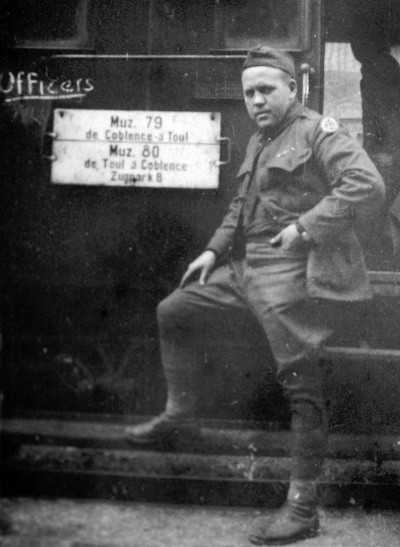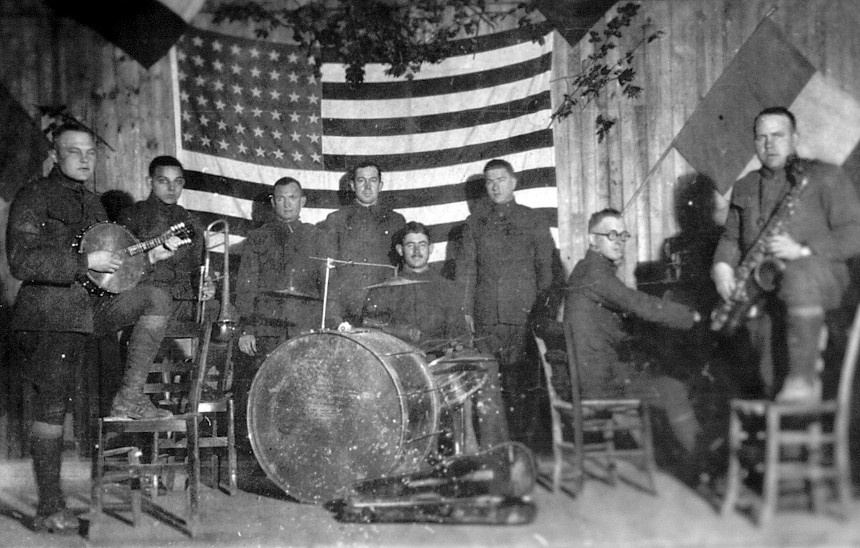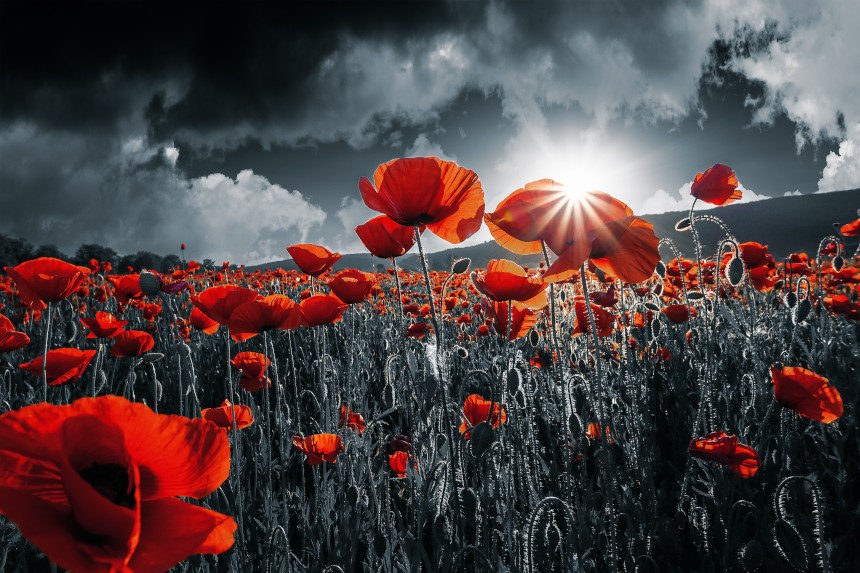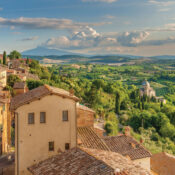Veterans Day. At 11 a.m. a wreath is laid at the Tomb of the Unknown Soldier at Arlington National Cemetery, marking the hour the fighting ended in World War I — November 11th — known originally as Armistice Day.
At the eleventh hour on the eleventh day of the eleventh month in 1918, the guns on the Western Front fell silent, ending one of the greatest military slaughters in world history.
British Prime Minister Harold Macmillan (1957-1963) said one time that the only reason he was prime minister was that all the men of his generation who would have been had been left on the battlefields of France.
World War I was called — no doubt out of hope — “The War to End All Wars.”
It obviously did not end all wars. See the history books for World War II, Korea, Vietnam, Iraq (two wars there), Afghanistan, and a distressingly long list of others. But the Armistice did stop the carnage wrought by the old principle of battle — to have your men attack the other side’s battle line. In World War I, with fixed positions and lines, those attacks came in waves, day after day, night after night — across a barren expanse known as “No Man’s Land” — into withering fire from the modern machine gun.
The carnage inspired a poem by a Canadian doctor, Lieutenant Colonel John McCrae, written shortly after he lost a friend at Ypres in the spring of 1915, when he saw poppies growing in the battle-scarred field:
In Flanders fields the poppies blow
Between the crosses, row on row,
That mark our place; and in the sky
The larks, still bravely singing, fly
Scarce heard amid the guns below.
We are the Dead. Short days ago
We lived, felt dawn, saw sunset glow,
Loved and were loved, and now we lie,
In Flanders fields.
The doctor’s poem, “In Flanders Fields,” resonated.
To the point that 20 years later, when I was a little girl, artificial red poppies — usually red paper flowers for the lapel — were a common sight on Armistice Day, made by the American Legion to benefit veterans. They were often sold by veterans on the streets, a bit like the Santas who ring their bells by the Salvation Army black kettles at Christmas.
When I was a little girl, I also remember the casing of an artillery shell that stood on the end table in our living room, like an empty, unused flower vase. Shiny metal, brass I think, perhaps 16 inches high and four or five inches round.
It took a few years for me to link the unusual metal thing on the end table to the story my father, who served in World War I, liked to tell about being sent overseas and writing home to tell his mother where he was stationed. She was so relieved to learn he’d not been sent up to the front, that he would be “safe” stationed at an ammunition dump. She failed to appreciate the dangers.

These World War I incidents and memorabilia were part of my childhood.
When people spoke of “the war” back then, it was World War I. Years later, “the war” became World War II. And still is to “The Greatest Generation.”
I may be a child of “The Greatest Generation,” but my childhood memories are of World War I, its songs playing on the radio still. The sad “Roses of Picardy.” Or, “There’s a long, long trail a winding … into the land of my dreams.” George M. Cohan’s “Over There” was still played sometimes and, occasionally, a whimsical offering by Irving Berlin, who would later give us “God Bless America.” An expression of the everyday soldier starting his day of service to his country, “Oh, how I hate to get up in the morning.”
“Roses of Picardy” by Mario Lanza (Uploaded to YouTube by Megamusiclover1234)
Music was a natural part of my memories. My father played the saxophone in a band in his college years, and during the interregnum in France. I think that the guys in the band, or most of them, went off to war together, played overseas together, and returned to college — this time the University of Michigan — together. I know they took basic training at Fort Benning, Georgia, for my father often told the story of the time they played for a local town dance.

They were going through their usual repertoire, which included a medley they went into as easily as they’d done a hundred times before. But this time they were only a few bars into one of the songs when the dancers paused and turned in their respective places on the dance floor to glare at the band with downright mean stares. They then stalked off the dance floor, often with a parting angry glance over their shoulders.
Too late Daddy and his buddies realized they were playing “Marching Through Georgia.”
As a friend of mine from Georgia said, speaking of that time, “There were still grandmothers in town who remembered Sherman.”
Daddy often talked about places he visited before being shipped home. Nothing like a Cook’s Tour of France and its close neighbors, but I remember his mentioning the town of Nancy and/or Nantes. And he ventured, although not too deeply, into the Alps.
He returned, as noted, and transferred to the University of Michigan, where he met my mother. And his life slipped into that of a young man embarking on his life in his early twenties.
Not all the veterans of World War I were so fortunate. Those who had left their jobs to serve their country returned to find their jobs had been permanently filled. And it left such a stain that the United States Congress decreed — formally written into law — that those who served in World War II (and all subsequent wars) would get their jobs back when they returned.
Not just a job. The job they’d had.
When I started at the Chicago Daily News as a copygirl in December 1944, there were around six female reporters my first year. They had been hired to replace the guys who were away fighting for their country. When the war ended and the guys returned, two of the women were so good they were kept on, and the staff expanded. The others cleaned out their desks and the guys who’d once been there sat down at their typewriters as before.
Congress also promised anyone who served a college education, in what came to be known as the G.I. Bill. And with the war’s end, colleges and universities across this country changed once again: during the war, regular students had been replaced by servicemen learning about pre-flight training, navigation, the fine art of a bomb sight; after the war, students found their ranks expanded by former G.I.s taking advantage of the opportunity to get a college degree.
It may be common today. But it was a rarity before World War II.
The G.I. Bill also made it possible for veterans to buy homes with little or no down payment and the government backing the mortgage. That’s why the Levitt towns and subdivisions with all those cul de sacs sprouted outside cities. Hundreds and hundreds and still more hundreds of veterans were able to buy homes.
In that respect, beyond the political alliances and treaties and missteps that led to World War II and its legacy, World War I had a major impact on life in this country. Everyday life. The determination to do right — this time — by all those who had served.
And today it’s almost forgotten. Only the anniversary date of its end is remembered, and it’s no longer Armistice Day.
Now it’s Veterans Day.
But still a day to pause — particularly, at 11 a.m. — to remember those who served.
Which is what this nation does.
In fact, some years ago when Congress decided that holidays should, whenever possible, be celebrated on Mondays so people could enjoy long weekends, the outcry from veterans and veterans’ groups about changing Veterans Day was so great that Congress had to change the date back to November 11. It wreaked havoc for a couple of years, however, because of the calendars that had been printed before the outcry.
A small price to pay, however, for a national holiday of such significance being observed on its anniversary date.
From those long ago days of childhood and the story about playing “Marching Through Georgia” to a reunion long years after the end of World War II, I remember Daddy talking about the war. Teaching me a few French words (not parlez-vous Francais?). And threaded through it all, his buddies.
They were just names to me until they gathered once again in our home in Wilton, Connecticut, one beautiful day in 1960, and brought new meaning to the word reminisce.
A happy time, created out of war time.
Featured image: Mike Pellinni / Shutterstock
Become a Saturday Evening Post member and enjoy unlimited access. Subscribe now




Comments
Thank you Val for sharing these special memories of your father you have of him from that time, though it was years before you were born. The photos and the stories such as you share here, stay with you for a lifetime.
I’m glad we actually had a Congress and government back then that helped a good number of the returning soldiers. This is something they should have foreseen and done BEFOREHAND. so all could have benefited, but at least they did it! I’m glad your father benefited (and you by extension), just as I did from the even greater benefits after World War II.
My grandfather (1891-1977, mom’s side) was in World War I for about a year and a half in 1917-18, but it was always just under the surface; like it had happened recently. It wasn’t all bad stuff by any means, to clarify. No, it was something that nothing before or since had the same impact on his life.
As much as I miss my parents and grandparents Val, I’m glad they’re not living to see the vicious brutality our own government in this country is inflicting on it’s own citizens during the worst crisis in American history domestically/simultaneously with the Covid pandemic now being unstoppable! In addition a large enough percentage of our own citizens super spreading it, not wearing the masks and not taking it seriously, still, at THIS very late date.
I’m glad Veteran’s Day was restored to November 11th, regardless of which day of the week it falls on. Thank you for including the ‘Roses of Picardy’ from YouTube right here. I really enjoyed it. It’s nice to go into a positive time, place and space, especially now. The Saturday Evening Post magazine and website let me do that everyday.
I love reading your stories when they appear here and want to return the favor in the form of some hauntingly beautiful music. Simply go to ‘War and Remembrance’ original theme on YouTube. It’s 2:37 long, and I think you’ll love it. It was the sequel mini-series to Herman Wouk’s ‘The Winds of War” from the 80’s. Both mini-series’ were created by Dan Curtis best known for ‘Dark Shadows’ 1966-’71, 1991. The music for DS and ‘War’ was composed exclusively by Robert Cobert, who passed away last Feb. at 95. I got to meet him at a DS convention near LAX in the 2000’s, and was very touched when I told him those themes were my most favorite compositions of all. He paused and said he ‘never hears that’ almost getting emotional, and will never forget me. I simply said the honor was all mine and had a feeling he probably didn’t hear that.
He was amused and laughed when I told him I was doing some late night photocopying at a Kinko’s (now Fed-Ex Office) a few weeks earlier and noticed William Shatner was the only other person there copying too. I hesitated to approach him, but I had to. I introduced myself and told him how much I loved his work as ‘Denny Crane’ on the brilliant ‘Boston Legal’ and he was very pleased. I’d heard he wasn’t nice. Was to me. I—-didn’t bring up ‘Star Trek’.